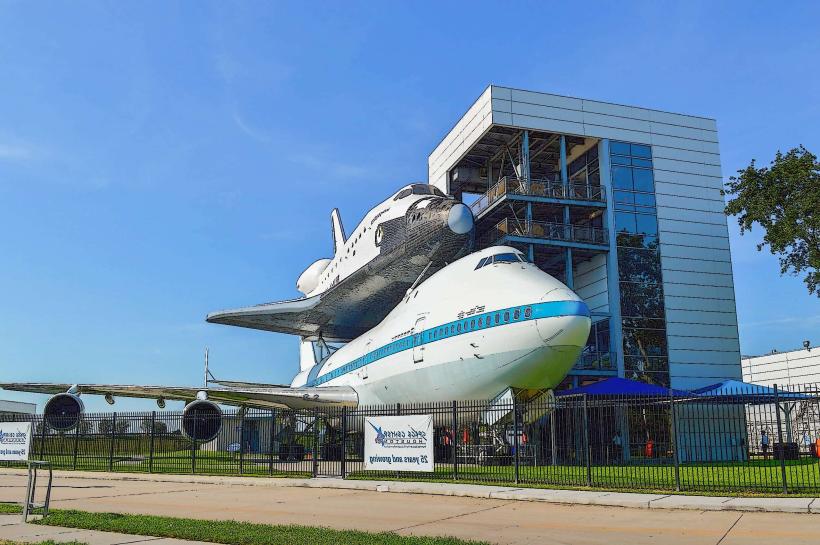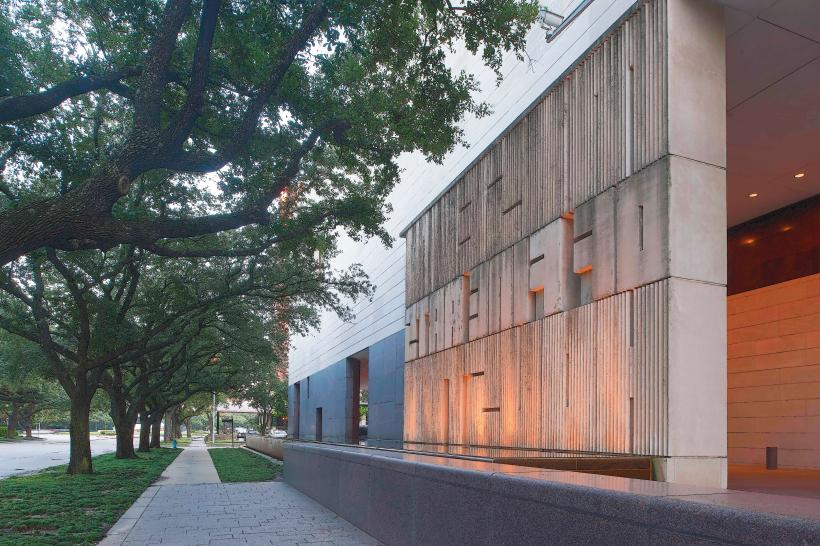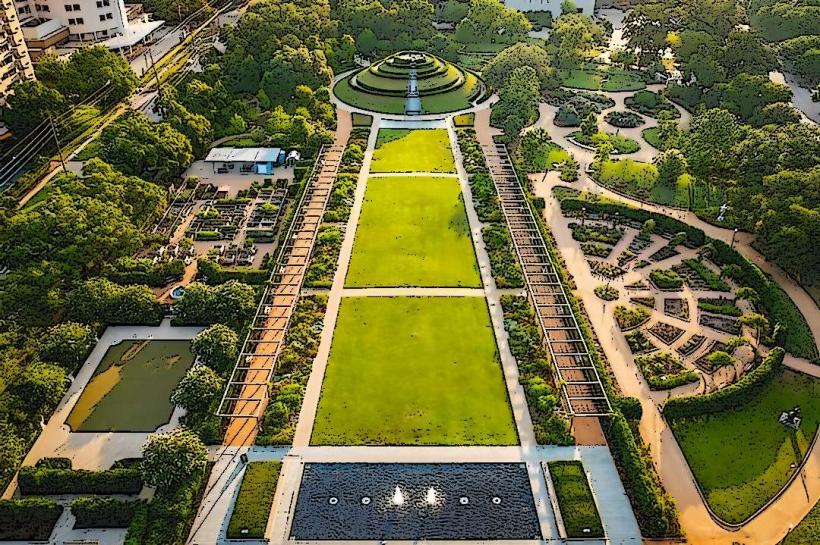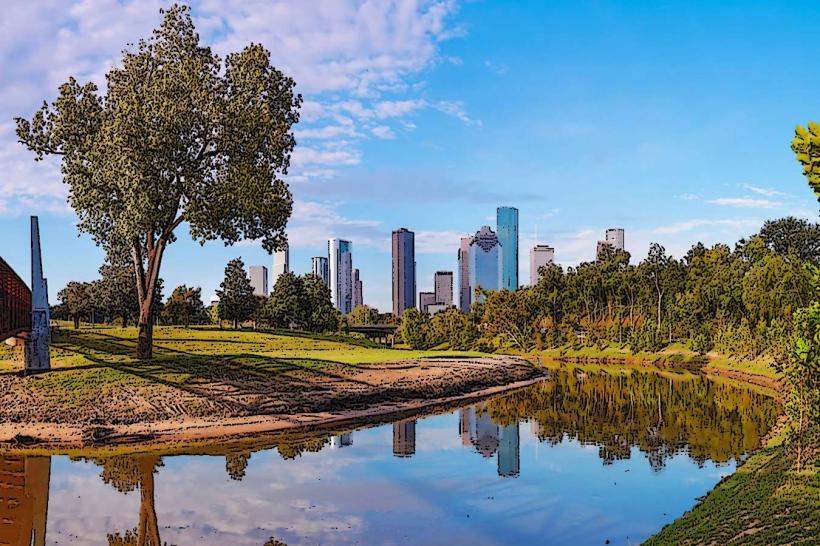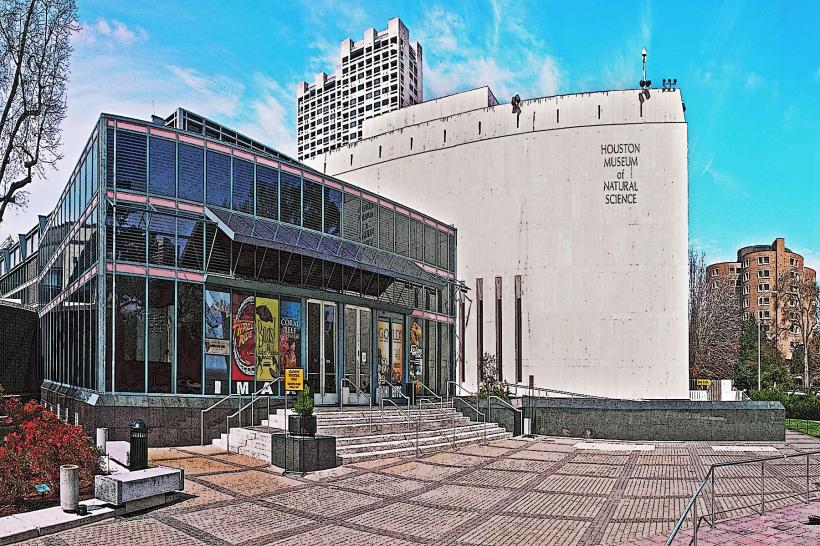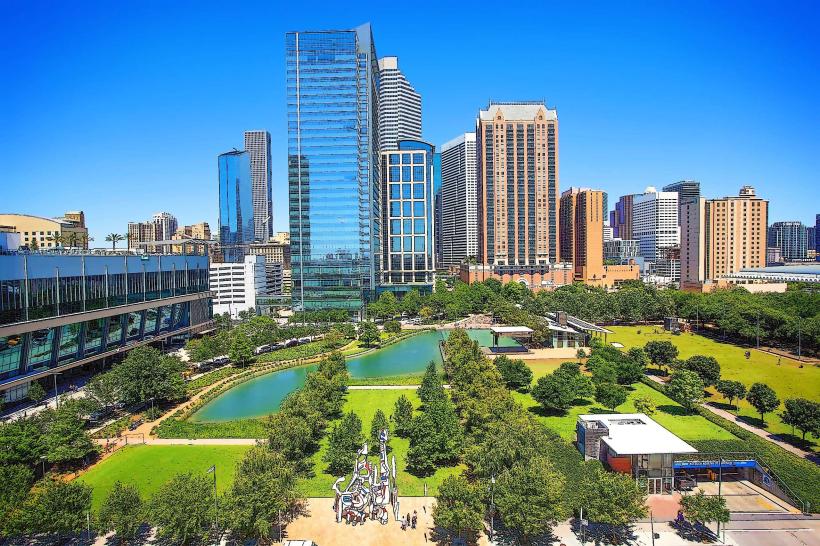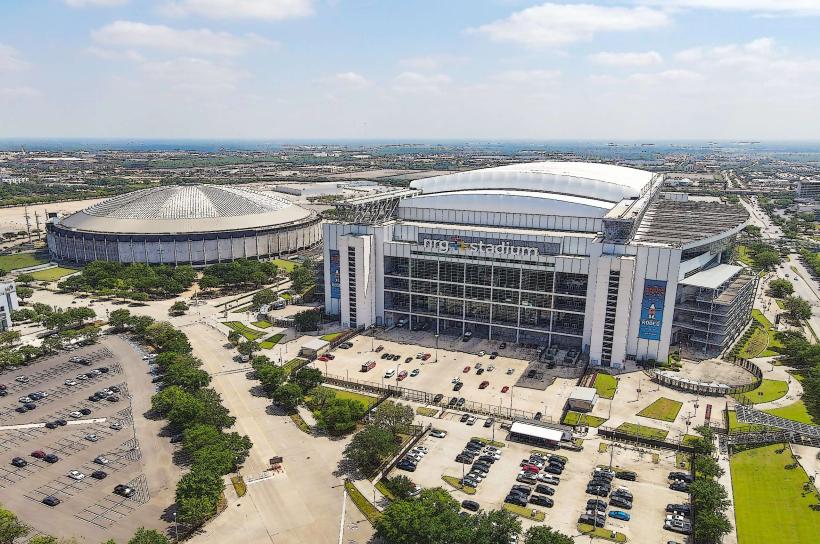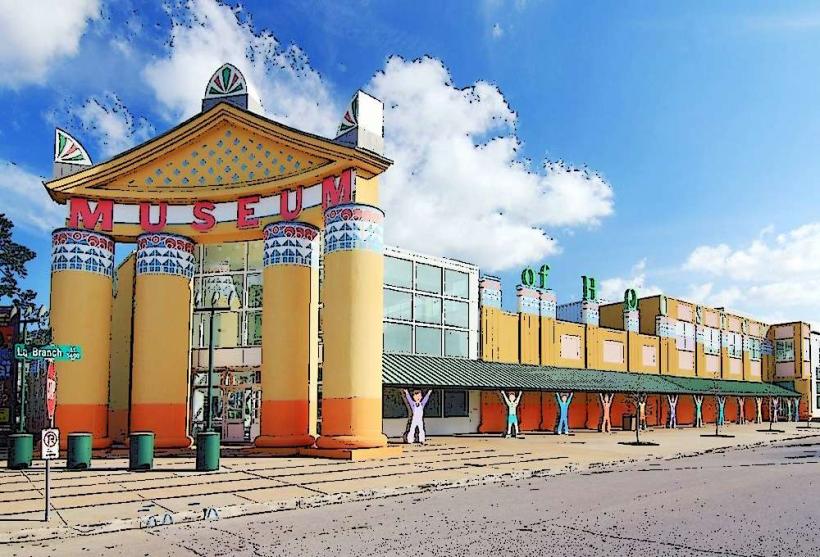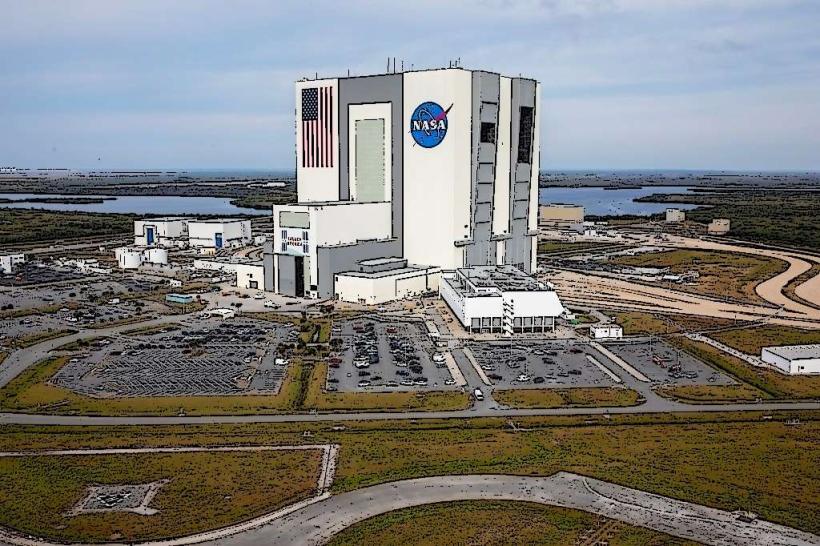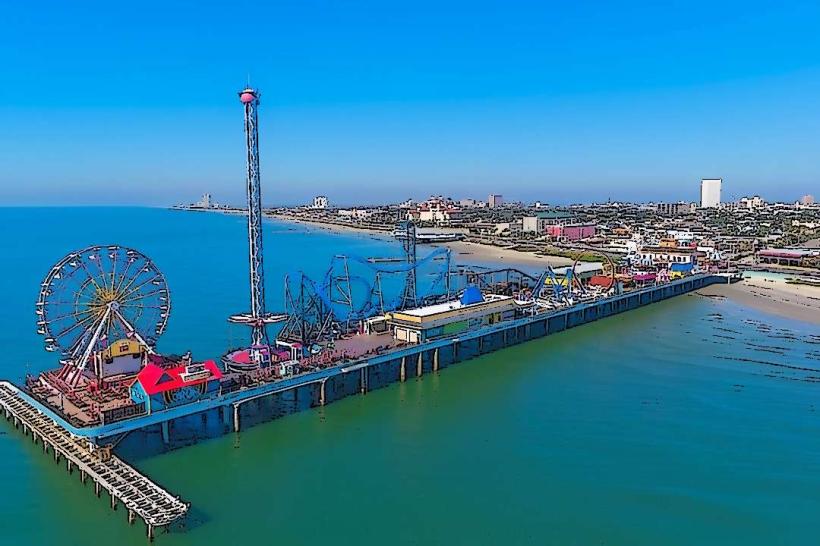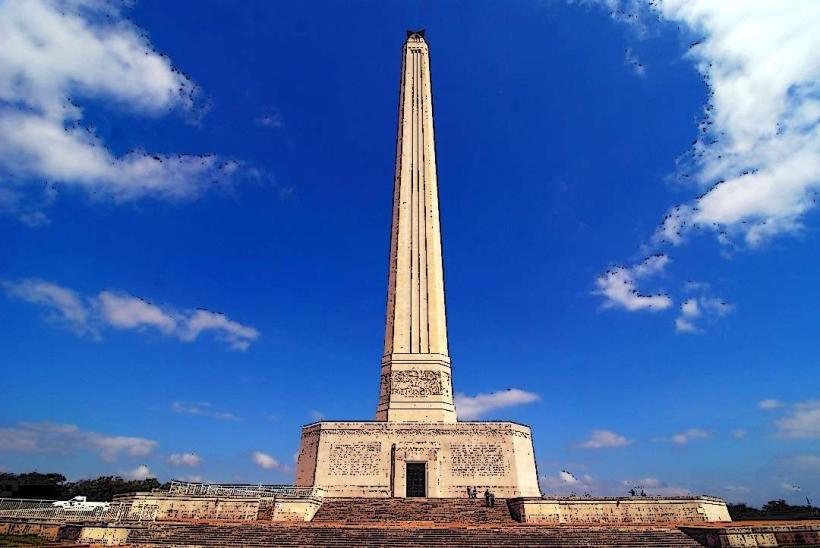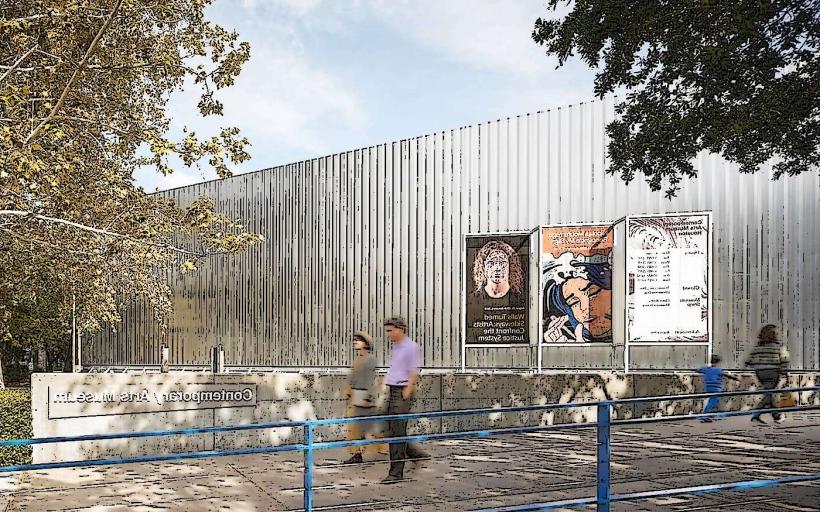Information
Landmark: Rice University CampusCity: Houston
Country: USA Texas
Continent: North America
Rice University Campus, Houston, USA Texas, North America
Rice University's campus is a beautiful blend of historical and modern elements, with a distinct architectural style and an emphasis on creating a vibrant and engaging environment for its students and faculty. Let's dive deeper into the key features of Rice University's campus:
1. Architectural Style and Campus Design
Rice University’s campus is celebrated for its unique Mediterranean Revival style, which was initially designed by architect William Ward Watkin. The campus is marked by its elegant, light-colored brick facades, archways, and colonnades. This cohesive architectural style has been preserved and extended, creating a visually stunning environment where classical architecture blends with modern buildings.
Fondren Library: One of the most iconic structures on campus, the Fondren Library, is known for its grand exterior and impressive interior. It’s a central spot for research and academic work.
Moody Center for the Arts: A modern addition to the campus, the Moody Center for the Arts showcases cutting-edge architecture with a focus on sustainable design, bringing contemporary and experimental art to the heart of the university.
2. Residential College System
Rice is one of the few universities in the U.S. that uses the residential college system, which fosters a strong sense of community. Instead of traditional dorms, students are assigned to one of 11 residential colleges (e.g., Baker College, Will Rice College, Jones College, etc.), each with its own unique culture and traditions. These colleges have:
Their own dining halls
Recreational spaces
Intramural sports teams
Social events and academic support
The colleges are designed to create a "small school" environment within the larger university, making it easier for students to connect and form close friendships throughout their academic careers.
3. The Arboretum and Green Spaces
Rice’s campus is home to a diverse range of trees and plant life. The Lynn R. Lowrey Arboretum spans several acres, adding to the university's natural beauty and contributing to the university’s sustainability efforts. The arboretum has been recognized as a Tree Campus USA by the Arbor Day Foundation due to the vast array of trees and other vegetation found throughout the campus.
Walking Trails: The campus also features walking trails through wooded areas, ideal for relaxation and connecting with nature. This green space is an important part of Rice's commitment to sustainability.
Herb Garden and Prairie: The university is home to specialized gardens, such as the herb garden, and native prairies that attract local wildlife and support environmental education efforts.
4. Campus Facilities and Sports
Rice University has a range of modern athletic facilities, providing students with various options for fitness and recreation. Some key athletic venues include:
Rice Stadium: Opened in 1950, Rice Stadium is a historic venue with a seating capacity of 47,000. It has hosted major events like the Super Bowl VIII and President John F. Kennedy’s famous speech on the moon landing in 1962. It's home to the university’s football team and is also used for various other events.
Reckling Park: This is a state-of-the-art baseball stadium, serving as the home of the Rice Owls baseball team. It's considered one of the best baseball venues in college sports.
Tudor Fieldhouse: The fieldhouse hosts basketball and volleyball games, as well as other events.
Rice Track/Soccer Stadium: This facility is used for track and field events as well as soccer matches, providing ample space for both athletes and spectators.
These facilities, alongside intramural sports teams and recreational clubs, contribute to a robust athletic culture on campus.
5. The Ion District and Innovation Hub
The Ion District, created by Rice University, represents the university’s push toward innovation and technology. The Ion is a massive 16-acre, $350 million development located in Midtown Houston, aimed at fostering entrepreneurship, tech innovation, and collaboration with businesses. Some key features of the Ion District include:
The Ion Building: A repurposed 1939 Sears store, now transformed into a modern coworking space that hosts companies in tech, energy, and business sectors, including Microsoft and Chevron Technology Ventures.
Startup Incubators: The Ion District is home to several business incubators and accelerator programs that help students and entrepreneurs grow their companies.
Innovation Hub: The space hosts regular events, workshops, and conferences to foster collaboration between Rice University, startups, and corporate partners.
6. Academic Buildings and Facilities
The Shepherd School of Music: Known for its world-class music program, this building is state-of-the-art and includes performance halls, classrooms, and studios designed to support the next generation of musicians and music educators.
The Baker Institute for Public Policy: A prominent research institute dedicated to tackling public policy issues, including global affairs, energy, and economics.
The George R. Brown School of Engineering: With its expansive research labs and modern classrooms, this school is at the forefront of technological innovation and scientific research.
The James A. Baker III Hall: Home to the university’s public policy programs, it offers modern classrooms and facilities for students to engage in policymaking and government affairs.
7. Expansion Plans
As Rice University continues to grow, it has undertaken several expansion projects to accommodate more students, faculty, and research initiatives. Notable expansions include:
New Graduate Housing: Rice is planning to expand housing options for graduate students, especially in the Ion District, which is undergoing rapid development.
New Academic Buildings: To meet the growing demand for academic space, Rice is also investing in new academic buildings and research facilities.
Increase in Enrollment: The university is projecting its student body will grow to 5,200 undergraduates and 4,300 graduate students in the near future, prompting these expansions.
8. Cultural and Social Events
The Rice Gallery: This is an innovative exhibition space where students and the public can experience modern art installations and performances.
Cultural Festivals: Rice hosts a variety of cultural events throughout the year, such as International Week, which celebrates the diverse backgrounds of the student body.
Public Lectures and Concerts: With its distinguished faculty and resources, Rice hosts frequent public lectures and concerts that are often free and open to the public.
9. Sustainability Initiatives
Rice University is committed to sustainability, with initiatives such as:
The Rice Sustainability Program: Focused on reducing the campus’s environmental footprint, including energy-efficient buildings, waste reduction programs, and the promotion of renewable energy sources.
Green Building Standards: Many of Rice's new buildings are designed with sustainable practices, including the use of recycled materials and low-energy consumption systems.
Conclusion
Rice University’s campus is a unique blend of history, culture, innovation, and natural beauty. Whether you're exploring its stunning Mediterranean Revival architecture, engaging in cutting-edge research, enjoying its athletic facilities, or simply taking a stroll through its arboretum, the campus offers a diverse and enriching environment for students, faculty, and visitors alike. The ongoing developments and expansions ensure that Rice University remains at the forefront of academic and technological innovation in the years to come.

